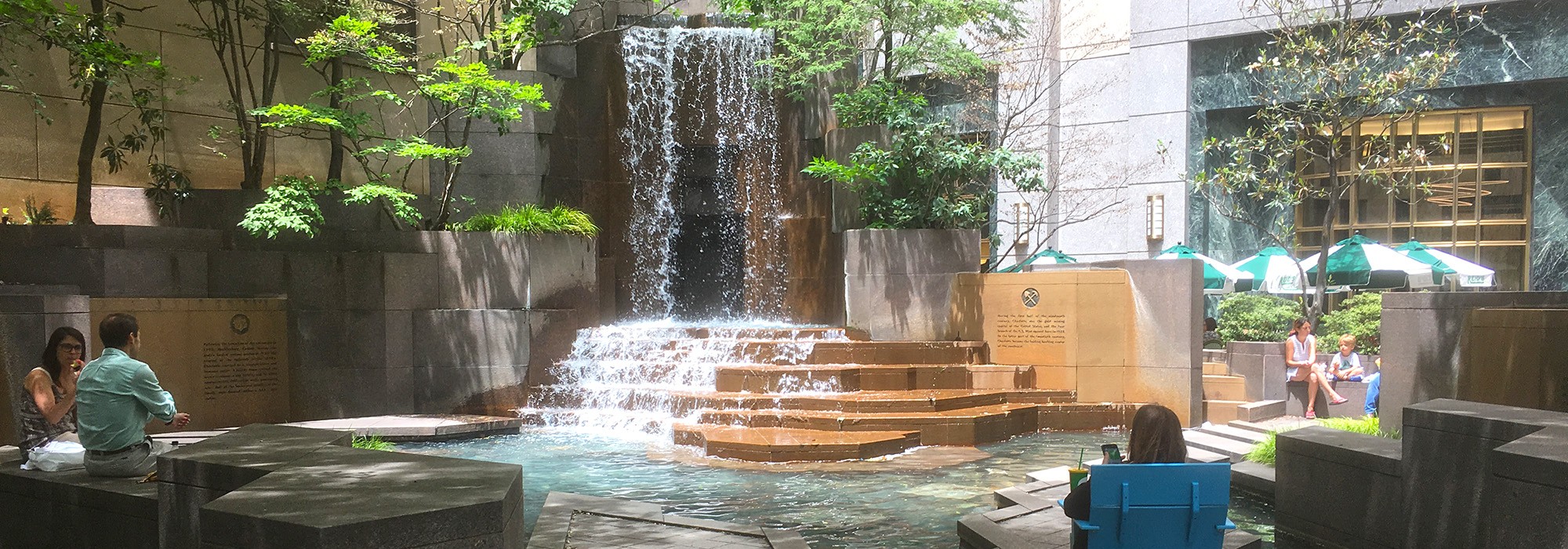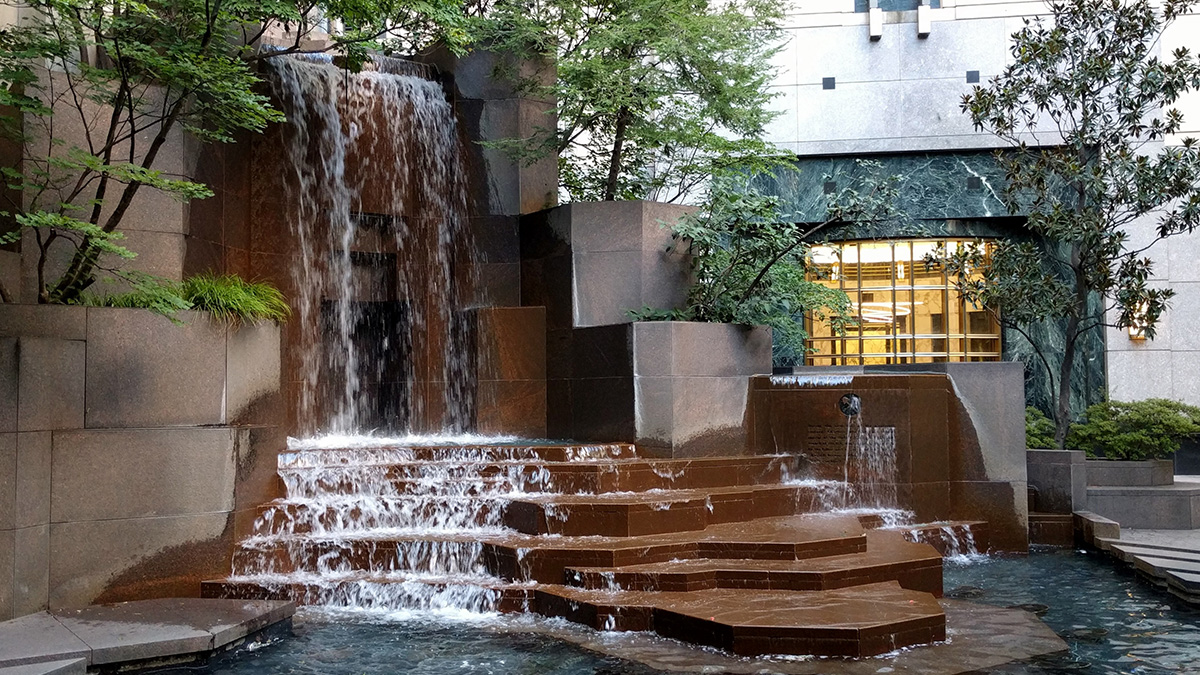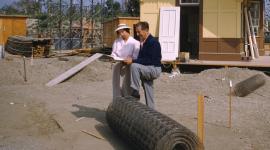Measuring one-third of an acre, this park is situated at the west quadrant of Independence Square, formed by the intersection of Trade and Tryon Streets, two four-lane roads that were once the location of an indigenous peoples’ crossroads. By the early eighteenth century the site developed as the nexus of two trade routes and Thomas Polk erected his home at the crossroads. In 1775 Polk convened a meeting at the square that purportedly led to the Mecklenburg Resolves, a precursor to the Declaration of Independence. Throughout the nineteenth and early twentieth centuries the site served as the city’s center of commerce. In the 1970s skyscrapers, connected by skywalks, were erected near the site and workers spent less time at street level, leading to its desertion. The square became derelict and in 1986 landscape architect Angela Danadjieva of Danadjieva and Koenig was engaged to design a park in the square’s northwest quadrant.
Opened in 1991, the plaza’s focal point is a 30-foot-tall central waterfall, with three subordinate falls that flow into a reflecting pool. The waterfall and lush plantings create a microclimate and a respite from the noise generated by vehicular traffic and forced air units on neighboring high-rises. Diagonal patterns in the pavement, composed of varying shades of local Piedmont red granite, reinforce the street grid and encourage freedom of movement, drawing pedestrians into the sheltered space. The pyramidal fountain animates the park with its cascades of water and creates a backdrop, while the open plaza in the foreground also serves as a stage. Polk Park is evocative of an outdoor “living room” for the city, where people may gather, away from the bustle of the surrounding neighborhood. In 2019 the city engaged Agency Landscape + Planning and James Garland of Fluidity Design Consultants to rehabilitate the park, but on March 13, 2023, the Charlotte City Council voted to demolish the city-owned park. Demolition began in May of 2023.
















